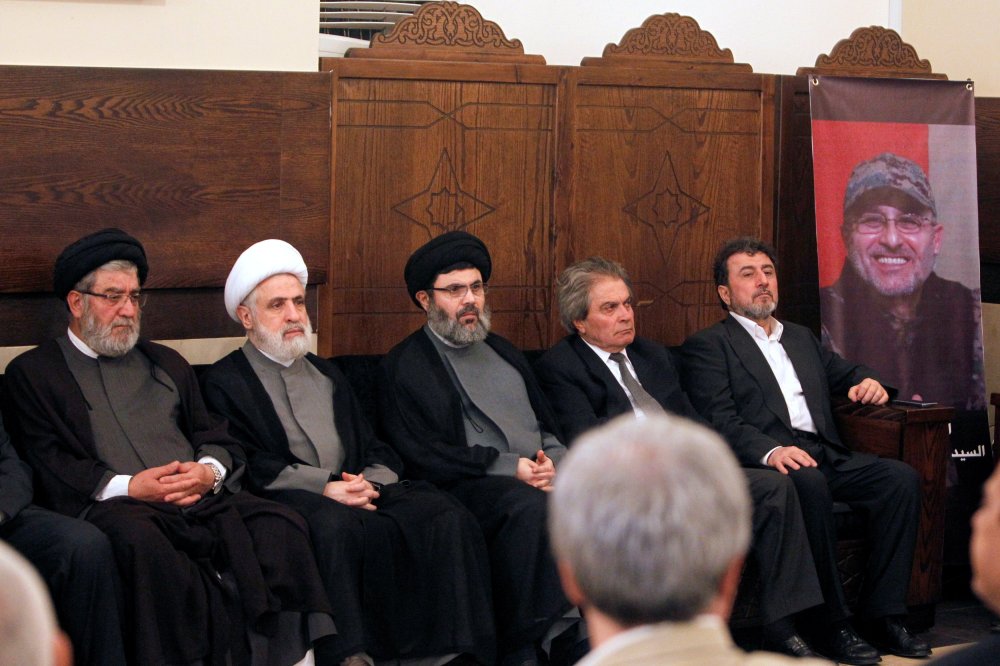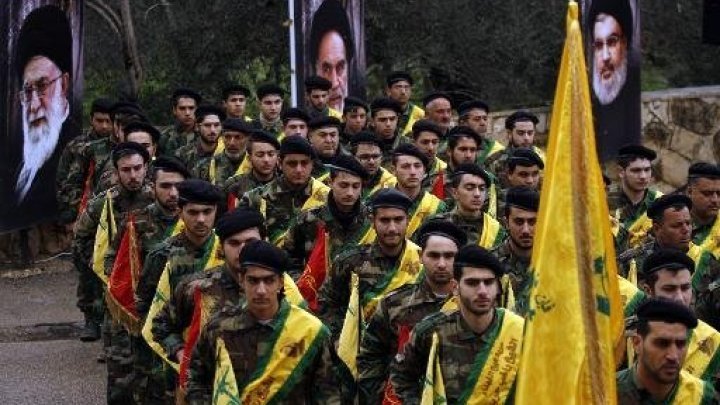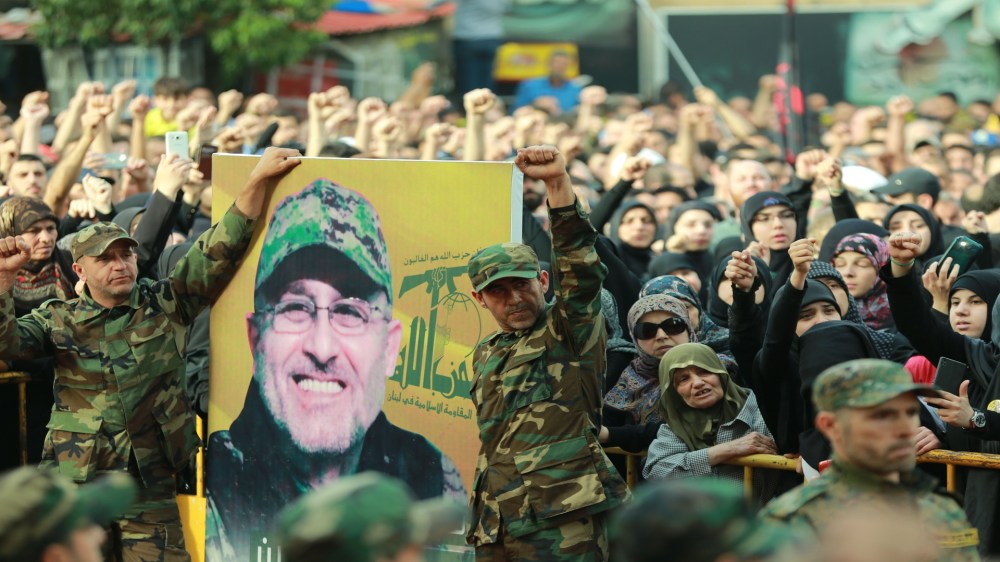By: Issam Khoury
11/08/2010
After the death of the Secretary General of the party, Abbas al- Musawi, a greater leadership was created, represented by what is called a ‘Consultative Council.’ The name derives from a verse from the Qur’aan: “They must consult each other.” It consists of seven members; each undertakes a certain role and runs one of the party’s sectors. Members of the Council make important decisions within the party, beginning with the Election of the Secretary General and ending with political and educational decisions, connected to the party’s audience. Decisions are always made within the walls of the Council, according to the opinion and correction of the majority.

The Organizational frame of the Party:
The Secretary General of the Party: He is elected by the Consultative Council’s seven members.
The Consultative Council is the highest rank: The Election is conducted through the most important conference of the party, The General Conference. There, the leaders of the regions and party institutes elect persons who would represent them in the Council. From this Council, four main institutes are issued:

- The Political Council: The chairman is the Ex-Deputy in the Council, Sheikh Ibraheem Amin El-Sayed. He forms political and informative relationships with Lebanese parties which recently became part of the Political Council. Previously, it had been Independent.
- The Executive Council: Observers describe it as the ‘Government of Hezbollah.’ It is responsible for the details of party activity and the daily organizational procedures. The Chairman of this Council is Sheikh Hashem Safieddine. He is a relative to Mr. Nasrallah and very similar in appearance.
- Judiciary Council: It resolves the disputes within the party and makes decisions in concern with organizational matters. Its chairman is Sheikh Mohammad Yazbek (the second to carry legitimate deputy from Immam Khamini, after Nasrallah)
- The Resistance: The direct leader is the Secretary General of the party, with the anonymous assistance of one member, for security reasons. The resistance sector is separate from others in the party. It has what is referred to as ‘the strategic ambiguity.’ Politicians in this party have little knowledge about anything related to the strategies of the Resistance. The Consultative Council is the greater leadership in Hezbollah. The Chairman is a Secretary General who has been active for three years. Now it is renewable, after the Amendment in the rules of procedure within the party. This position had been occupied by Sheikh Hassan Nasrallah since February of 1992. The current Consultative Council consists of:
-

Hassan Nasrallah - The Secretary General: Hassan Nasrallah
- The Deputy of the Secretary General: Sheikh Na’eem El-Qasem. He has the authority to provide statements on behalf of Sheik Nasrallah, and to replace him in any political or security state of emergency. If the Secretary General dies, the Deputy resumes power until the next emergency conference of the Council is held, where a new member is elected to occupy the post.
- The political assistance of the Secretary General, Sheikh Hussein Khalil: He provides advice to the Secretary General and conducts press statements by his commission, in case he becomes a substitute to Sheikh Na’eem Qasem.
- Sheikh Ibrahim Amin al-Sayed: His work is restricted to coordinating political relationships with other Lebanese parties. He is also highly efficient in coordinating external relationships with outside personalities, such as exchanging prisoners, making political deals and ensuring regional coordination.
- Sheikh Hashem Safieddine: He is one of the most humble personalities in the party, and remains the closest to the people. He never strayed far during the latest War of July. He visited and supported families of deceased soldiers. He is most vital practically, steering clear of the press and avoiding foreign affairs discussions.
- Sheikh Mohammad Yazbek: One of the most educated Shiite clerics. He became a legal and knowledgeable source in taking decisions within the Council. The leaders of the Council believe that God supports them in taking those decisions.
- Sheikh Jawad Nour Deen: He has no specific role, but certain missions and consultations are assigned to him when necessary. It is expected that he would be the first to assist the Secretary General in situations of concern for the organization of the resistance’s activity. During the war, the Secretary General had secluded himself in the Military Operations’ underground room. Sheikh Nour Deen was the Coordinator of communications between the Military and Political leaderships.

The Military Leadership of the Party:
Not much is known on the name, work or orientations of the supreme commander of Hezbollah. After Haj Imad Mughnya (Palestinian in nationality) was killed, his succeeding leader was named ‘Leader X.’ This leader, whatever his name may be, was connected with a web of security coordination that directly related to the Secretary general of the party. this web is connected to the external section of the Iranian Revolutionary guards.
Sometimes during crisis, this Lebanese link would avoid action inside Lebanese territories, and coordinate with some military attaches in the Iranian Embassy to transport the situation between the military and political section, as what happened in the War of July.
Today, this web has loyal advocates and partisans from members of the Public Front and Hamas in Lebanon. Occasionally, the web uses them to facilitate some of its tasks. These Palestinian members have gone through high military and security training on Iranian land.

Disputes Inside the Consultative Council:
The Lebanese public opinion is unaware of any declared dispute inside the Consultative Council of Hezbollah. Some who would profit from that would exploit expressions from certain personalities inside the Council. There was a recent rumor that Hassan Nasrallah is in total incoherence with Sheikh Na’eem Qasem, that there are trials to appoint another Deputy to replace him. However, it seems this is an unacceptable falsehood, as any change in the Council must be carried out through the general conference of the party. This conference never verified it – as of yet. The conference from last year did not bring about any changes, as public leaders (regions, people, and cells) are convinced with the success of the policy of the Council during July’s War and the ensured rebuilding campaigns.

Haj Mostafa Badr Deen: He is one of the party Military leaders. He was the son-of-law of Imad Mughniyah and possibly one of his important secretaries. He performed with Mughniyah’s secret operations. Additionally, the Kuwaiti security systems arrested him in the eighties and he was released during the Iraqi invasion of Kuwait. He is close to the military leadership of Hezbollah. He could very well be ‘Mr. X’ and could be suspect number one in the decision of the International Court, according to Israeli TV that described him as an undercover with the alias of Elias Saab. Being a military man with no advanced religious education, he is consecrated only to military field works. His relation will be limited to the Secretary General of the party or the leader X, if we presume that he is not Mr. X. Of course, accusing this person within the decision would weaken him practically and politically, and would prevent him from achieving new ranks. The supposed decision could be an attempt to weaken Hezbollah militarily, through accusing important military members within the group.
The Report in Arabic:
حزب الله ونظامه الداخلي
Editing by: Adam November